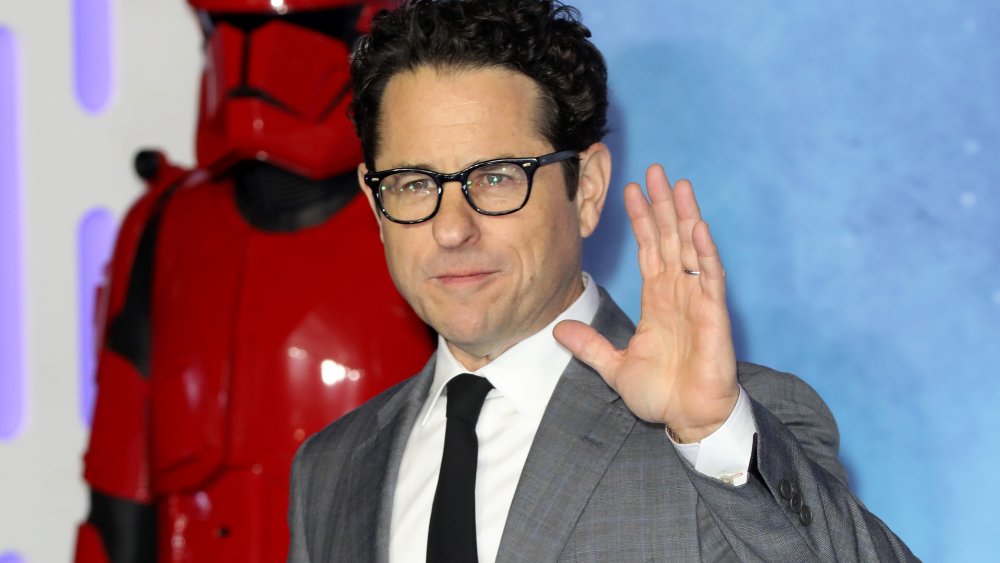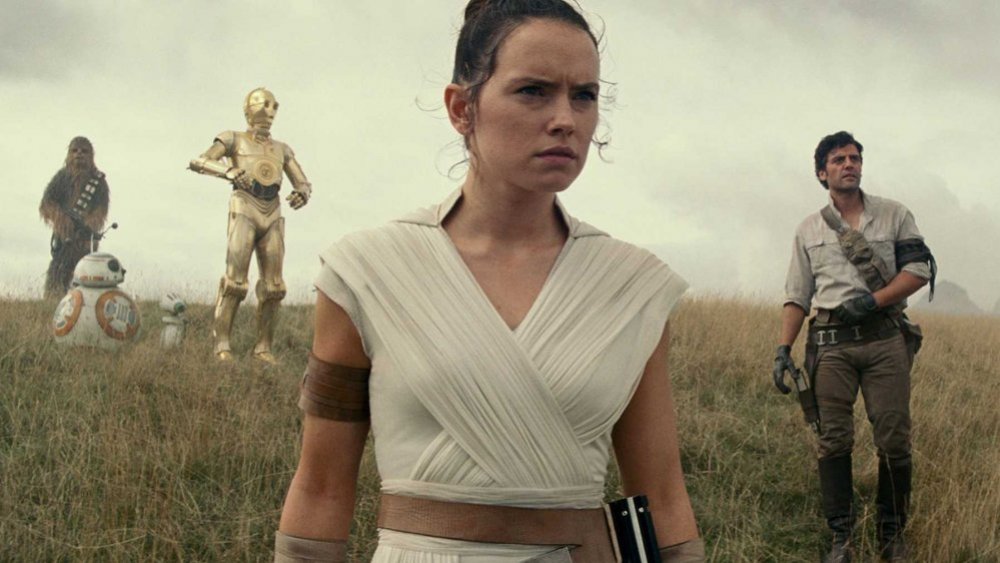Why J.J. Abrams Says Rise Of Skywalker Critics Are Right
Hated The Rise of Skywalker? J.J. Abrams actually agrees with you — kind of.
During a Q&A after a screening of the film at the Academy (via Collider), Abrams addressed the widespread criticism of his latest film and the final movie in Star Wars' long-running Skywalker saga.
Ever since The Rise of Skywalker premiered on December 20, 2019, critics have made their feelings be heard loud and clear. As of this writing, it's scored a paltry 55 percent critical score on Rotten Tomatoes (which makes it the second-worst reviewed Star Wars film since The Phantom Menace), and though its audience score is sitting pretty at 86 percent, plenty of fans are unhappy with Abrams' conclusion. Still, the filmmaker tackled the numerous critiques of his latest effort with respect, telling the audience that he agrees with the critics... and also agrees with those praising The Rise of Skywalker.
"I'd say [the film's critics are] right. The people who love it more than anything are also right," said Abrams. "We knew going in — I was asked just seven hours ago, 'So how do you go about pleasing everyone?' and I was like 'What?' Not to say that that should be what anyone tries to do anyway, but how would one even go about it? Especially with Star Wars."
Abrams then went on to say that he and his Rise of Skywalker co-writer Chris Terrio pair knew some of their choices would be quite controversial: "We live in a moment where everything seems to immediately default to outrage, and there's an M.O. of it's either exactly as I see it or you're my enemy... But it's a crazy thing that there is such a norm that seems to be devoid of nuance and compassion — this is not about Star Wars, this is about everything — and acceptance. It's a crazy moment, so we knew starting this, any decision we made — a design decision, a musical decision, a narrative decision — would please someone and infuriate someone else."
What went wrong with The Rise of Skywalker
So what exactly happened in The Rise of Skywalker that drew such ire from critics?
To start, Abrams' overeagerness to please might have turned off filmgoers due to the movie's sheer amount of fan service. Some critics, including The Washington Post's Michael O'Sullivan, pointed to this as the main issue of the film. O'Sullivan wrote that The Rose of Skywalker "panders wildly, closing out this last chapter of the nine films that have come to be known as the Skywalker Saga with a story that delivers to the faithful exactly the movie they wanted.
Slate's Sam Adams felt similarly, writing, "Rather than making a movie some people might love, Abrams tried to make a movie no one would hate, and as a result, you don't feel much of anything at all." TIME Magazine's Stephanie Zacharek was more blunt, saying, "In its anxiety not to offend, it comes off more like fanfiction than the creation of actual professional filmmakers. A bot would be able to pull off a more surprising movie."
It's disappointing that even an act of fan service wasn't enough to win over critics, many of whom grew up with the Star Wars films, but The Rise of Skywalker's worst sin was definitely Abrams' attempted erasure of the eighth episode in the saga, writer-director Rian Johnson's The Last Jedi. After directing The Force Awakens in 2015, Abrams stepped away from the series for one film, and upon returning, he seemed determined to scrub any trace of Johnson's narrative threads from his final film. Critics noticed this as well; Joshua Rothkopf at Time Out wrote, "It feels like a massive retrenchment — privately, a rebellion seems to have been fought and lost — and only the most loyal fans will be happy about it."
Ultimately, in the wake of The Rise of Skywalker's release, it's for the best that Abrams can be realistic about the middling results. Between his attempts to walk back most of The Last Jedi as well as the film's clear desperation to be liked, it might be best for Abrams to learn from his Star Wars sins. And he may already have, as he's said he isn't returning to the galaxy far, far away any time soon — possibly ever.

